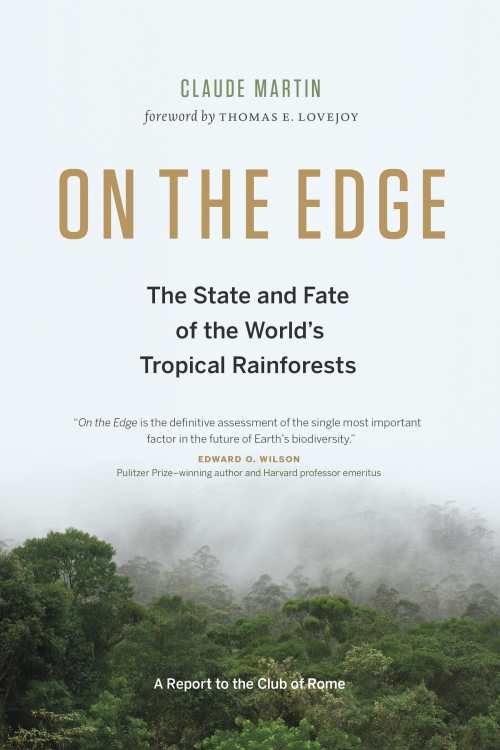I spent Thursday with the World Land Trust who are experts in saving rainforests – working with local people to secure important fragments of biodiversity-rich habitats (that’s not all they do, but it is the thing about their work that I most admire).
This book, by a former Director General of WWF International, is a very good summary of the information about rainforests, their losses and their value to us. I guess there are many of us who have hardly set foot in a rainforest, know that they are disappearing, wish they weren’t but are not really up to speed with the issues. This is a good place for all of us to start getting up to date. There’s lots of information and it is well-explained.
The rainforests of the three main continents, South America, Africa and South-east Asia are all wonderfully rich in wildlife, are all important carbon stores and are all threatened and being reduced in area. But just as the wildlife is different in each, so are the pressures causing rainforest loss, the cultures of the indigenous peoples and governments involved and therefore the solutions that must be deployed. It’s easy to see why a lot of WLT work is done in South America – wonderful wildlife, formal land tenure systems, fairly stable and fairly incorrupt governments – all things you need to make land purchase a successful solution to rainforest loss.
Martin has a seventeen-point plan for saving the world’s rainforests and it looks a pretty good one. The book, alongside the information it contains, carries a message of urgency and also of hope – we do need to do better but it’s perfectly possible that we can. But will we?
If we don’t, then we will lose vastly important carbon sinks and large proportions of the world’s natural beauty. If we did that we would show how unwise and uncultured our species really is.
Dotted through the book there are short essays by experts and opinion-formers, and some boxes which go into particular issues in more depth – these are good too.
This is not a book about protected areas alone, they fit into the story but do not dominate. If you and I, sitting at home, far from any rainforest, want to help, then reducing our meat consumption, and reducing our food waste will certainly make a difference. Also, telling our government not to support biofuel production and not to important those products from rainforest countries would help too. But we could also support the WLT’s Buy an Acre initiative.
On the Edge by Claude Martin is published by Greystone.
Inglorious: conflict in the uplands by Mark Avery will be published by Bloomsbury on 30 July.
Behind the Binoculars: interviews with acclaimed birdwatchers by Mark Avery and Keith Betton is published by Pelagic on 20 July (and you can win a signed copy here).
A Message from Martha by Mark Avery is published by Bloomsbury – for reviews see here.
[registration_form]